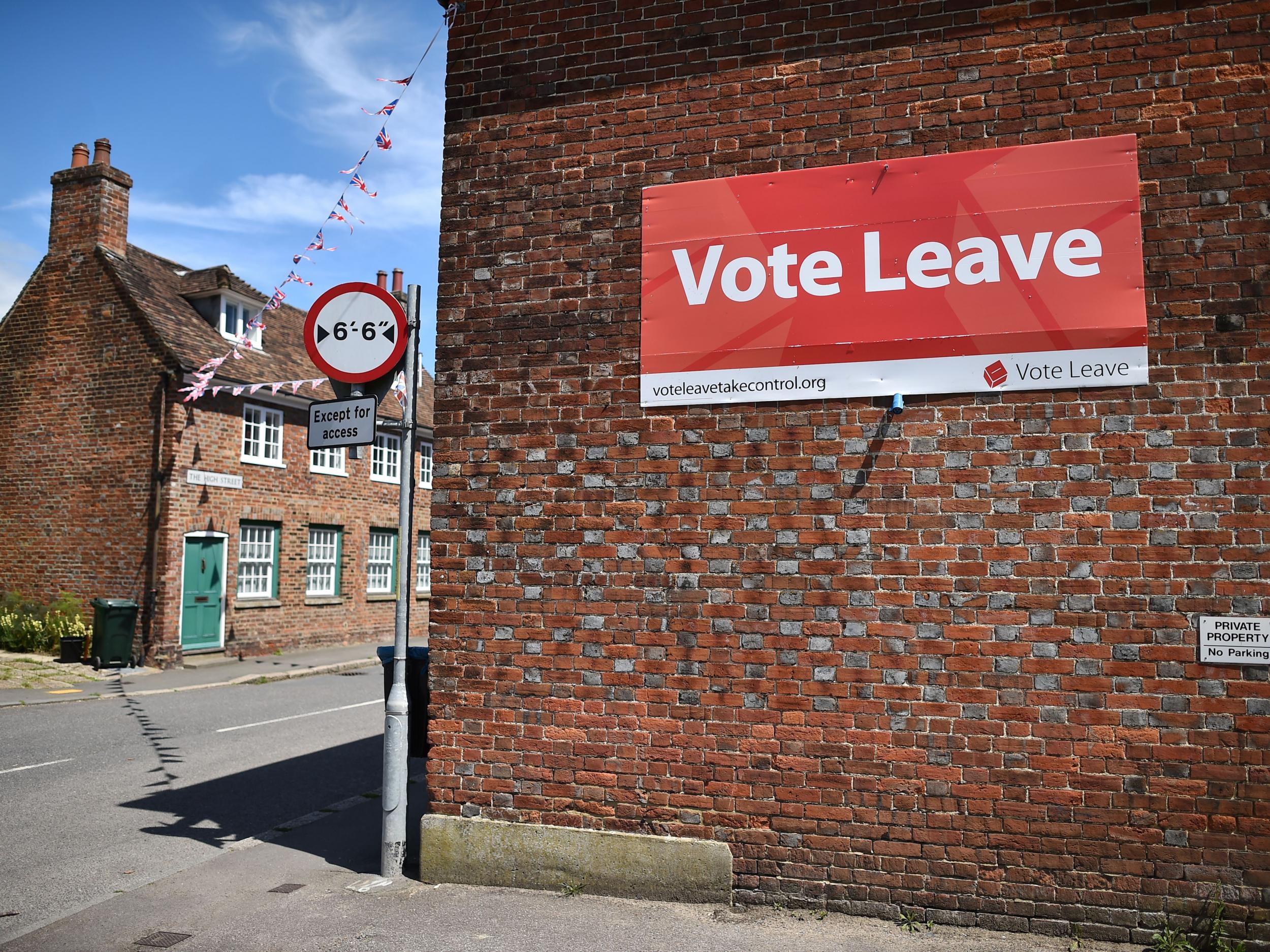Failing to hold working-class people to account when they're racist or misogynistic is patronising and wrong
My mother is a cleaner and my father a factory machinist. Both presented me with books from an early age and encouraged my interests in literature and opera. I reject the idea that those interests are ‘middle class’ – or that the working classes should escape scrutiny when they vote for xenophobes like Farage and Trump

I remember the moment, some years ago, when I made the decision that I would not talk about my social background – I wasn’t going to hide it but I wouldn’t speak of it unless asked directly. I had just embarked on a degree programme – the first in my family to do so – and, while sat in the common room, listened as my peers played the well-intentioned yet tiresome game of identifying who could lay claim to the most “working-class” background.
I remained silent on the subject of my working-class origins and identity, preferring to let friends and colleagues run with their own assumptions. My supposedly “middle-class interests” – opera, art, literature – were, and are, taken as indicators of a middle-class background, a misunderstanding that I was happy to let slide until the EU referendum and the US election shocked me into speech.
In both campaigns and in the shock that followed, the working classes were centre-stage. Whether reviled or celebrated, the good/revolutionary/salt-of-the-earth/real/racist/stupid (delete as appropriate) working people of the United States and the United Kingdom were subject to the usual reductive discourse. The reality, and complexity, of working-class lives was rarely mentioned.
My mother is a cleaner and my father a factory machinist. Both presented me with books from an early age and encouraged my rather peculiar interests (yes, opera and literature again) in the face of some rather raised eyebrows among wider friends and family. My love of the arts never felt like an expression of “middle-class values” but instead a celebration of working-class curiosity.
For me, literature and art have never been middle-class values, nor, due to their love of education, were my parents part of some elite. On the contrary, my parents have struggled and continue to, in a system that cares little for them. Yet both know how to spot a charlatan and I am exceptionally proud of both of them for taking a stand against well-off “entertainer xenophobes” like Nigel Farage and Donald Trump, particularly as this stand has roused the ire of some in the community in which I grew up.
My failure to say to my friends and colleagues, “Hold up, these are working-class interests too” is emblematic of a breakdown in communication on both sides of the Atlantic. We have allowed a false dichotomy to emerge: “liberal elitism versus working-class authenticity”. That detestable word, “authenticity” – code for “know your place” – is a rebuke to those who disrupt the stereotype of what a working-class man or woman should look like.
I’m not going to glamourise the working classes (and there are more than one). They are not infallible or more innately noble than any other social class. They can be violent, masochistic and (whisper it) stupid. The left, in particular, can be squeamish when it comes to calling out working-class homophobia and racism. Trump and Farage do not shock me because their language of hate was present in the playgrounds and family gatherings of my youth. For that reason, these infantile men also fail to intimidate me.
At the same time, the working classes are no more villainous than other classes. They can be tolerant, productive, passionate about justice and equality. No amount of hardship or disenfranchisement can legitimise hate speech. To suggest otherwise is to do a disservice to those working-class people who bravely reject misogyny, racism and homophobia in their communities. The open minds and hearts of my parents have created a generous and outward-looking working class identity that underpins the way I live and the things I love (yes, including opera).
My father, a man whose youthful politics were certainly on the far right of the political spectrum and who, before my birth, claimed he would disown a gay child, is now a supportive father to a gay, polyamorous, socialist son and voted, despite years of Euroscepticism, to remain in the EU. How did this happen? In one of the most moving conversations I have ever had, my father argued that my siblings and I had changed his viewpoint. The otherness that had terrified him was normalised by the lives we led, the friendships and romances we formed across national, racial and religious boundaries.
Progressive voices are not restricted to the Eastern and Western seaboards or to the confines of the M25. Across the US and the UK, the progressive working-class tradition needs tending more than ever. I had hoped that my parents’ kindness and generosity, as well as their ability to challenge their own prejudices, would be vindicated in the referendum. It was not. And this devastates me.
My parents deserved better from their peers. The only solace I can offer them is my love, my gratitude, my solidarity, my immeasurable pride in them and a solemn promise to fight on. Part of that fight is accepting what the working classes really are – often liberal, justice-loving people whose values set the foundation of the Labour movement which so many middle-class people have now joined. And part of it is accepting that when we don’t call out racism, misogyny and homophobia in some sections of the working classes, we patronise them beyond belief – and we allow prejudice to continue.
Join our commenting forum
Join thought-provoking conversations, follow other Independent readers and see their replies
Comments